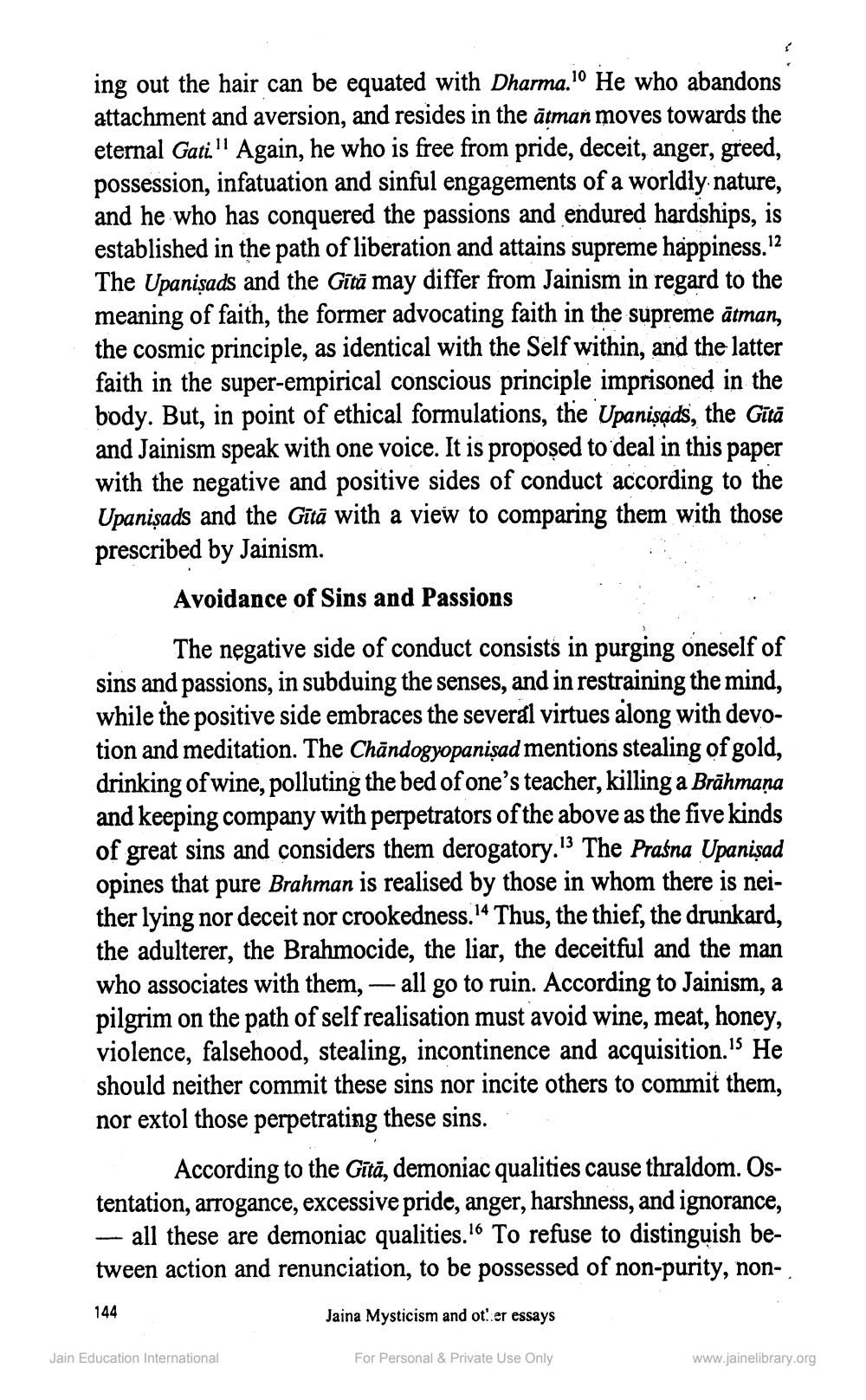________________
ing out the hair can be equated with Dharma.'' He who abandons attachment and aversion, and resides in the atman moves towards the eternal Gati." Again, he who is free from pride, deceit, anger, greed, possession, infatuation and sinful engagements of a worldly nature, and he who has conquered the passions and endured hardships, is established in the path of liberation and attains supreme happiness. 12 The Upanişads and the Gītā may differ from Jainism in regard to the meaning of faith, the former advocating faith in the supreme ātman, the cosmic principle, as identical with the Self within, and the latter faith in the super-empirical conscious principle imprisoned in the body. But, in point of ethical formulations, the Upanisąds, the Gītā and Jainism speak with one voice. It is proposed to deal in this paper with the negative and positive sides of conduct according to the Upanişads and the Gītā with a view to comparing them with those prescribed by Jainism.
Avoidance of Sins and Passions
The negative side of conduct consists in purging oneself of sins and passions, in subduing the senses, and in restraining the mind, while the positive side embraces the several virtues along with devotion and meditation. The Chāndogyopanişad mentions stealing of gold, drinking of wine, polluting the bed of one's teacher, killing a Brāhmana and keeping company with perpetrators of the above as the five kinds of great sins and considers them derogatory. 13 The Prašna Upanişad opines that pure Brahman is realised by those in whom there is neither lying nor deceit nor crookedness. 4 Thus, the thief, the drunkard, the adulterer, the Brahmocide, the liar, the deceitful and the man who associates with them, — all go to ruin. According to Jainism, a pilgrim on the path of self realisation must avoid wine, meat, honey, violence, falsehood, stealing, incontinence and acquisition.'He should neither commit these sins nor incite others to commit them, nor extol those perpetrating these sins.
According to the Gītā, demoniac qualities cause thraldom. Ostentation, arrogance, excessive pride, anger, harshness, and ignorance, - all these are demoniac qualities. To refuse to distinguish between action and renunciation, to be possessed of non-purity, non
144
Jaina Mysticism and ot' er essays
Jain Education International
For Personal & Private Use Only
www.jainelibrary.org




